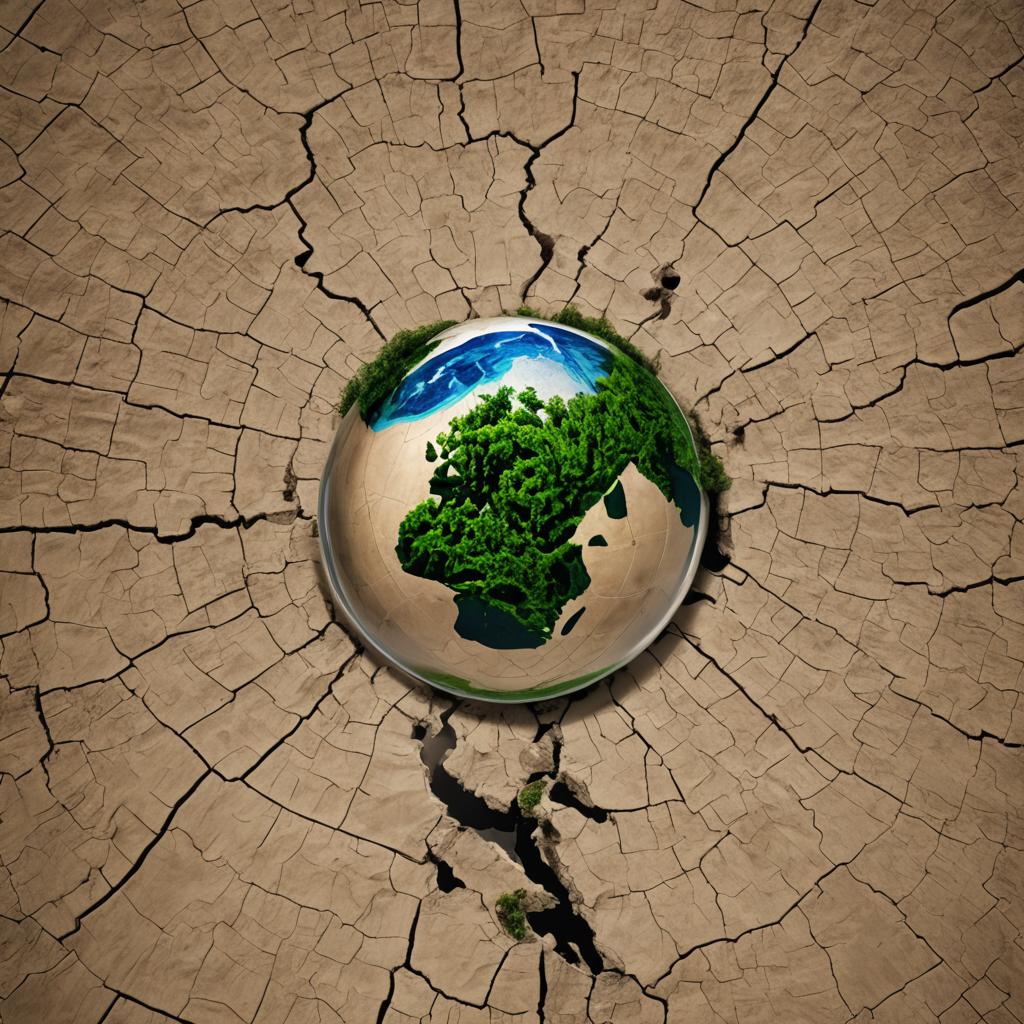As promised we are covering deeper analysis of the numerous threats facing the future of tourism and exploring some of the solutions to these risks. This months focus is on Climate Change and the impact of climate change on our current tourism sector.
From hotter destinations to unpredictable weather patterns, climate change is no longer a distant threat; it is a current reality reshaping tourism as we know it today. This makes one of our more important sectors for economic activitiy vulnerable and so it is crucial that we analyse these threats in much more detail.
According to a 2021 report by the Intergovernmental Panel on Climate Change (IPCC), global temperatures are likely to rise by 1.5°C above pre-industrial levels within the next two decades, accelerating the impacts on natural and human systems.
The World Tourism Organization (UNWTO) highlights that climate change could drastically alter travel patterns, with some destinations becoming less viable due to extreme weather and others benefiting from new opportunities.
Rising Temperatures
Tourist hotspots, especially those in warmer climates, are experiencing unprecedented temperature increases. This trend is a double-edged sword for the tourism industry. On one hand, warmer weather can extend the tourist season in temperate regions, potentially boosting revenues. On the other hand, extreme heat can deter visitors, lead to health risks, and degrade natural attractions.
European destinations like Spain, Italy, and Greece, renowned for their sunny climates and beautiful coastlines, are facing record-breaking temperatures this year. In 2021, Sicily recorded a temperature of 48.8°C (119.8°F), the highest ever in Europe. Such extreme heat not only dissuades tourists but also strains local infrastructure and ecosystems. Just this week Spain has has to issue a hot weather warning to tourists, encouraging them to stay indoors.
Unpredictable Weather Patterns
Climate change is also leading to more frequent and severe weather events, including hurricanes, floods, and droughts. These unpredictable patterns pose significant risks to tourism infrastructure, safety, and overall appeal.
A good example here is in the Caribbean, a region heavily reliant on tourism. This destination is increasingly vulnerable to hurricanes. In recent years, hurricanes like Irma and Maria have caused extensive damage to popular destinations such as Puerto Rico, the Bahamas, and Dominica. Recovery efforts are costly and time-consuming, often taking years to restore full functionality. The unpredictability of these events makes it difficult for the tourism industry to plan and for tourists to feel safe visiting.
Adaptation and Mitigation Strategies
- Sustainable Tourism Practices: Promoting eco-friendly travel, reducing carbon footprints, and preserving natural habitats are crucial for sustainable tourism.
- Infrastructure Resilience: Investing in resilient infrastructure that can withstand extreme weather events is essential. This includes flood defenses, stronger buildings, and efficient emergency response systems.
- Diversification: Diversifying tourist offerings to reduce dependency on climate-sensitive attractions can help. For instance, promoting cultural tourism, urban experiences, and indoor activities.
- Technology: Using advanced technologies to better understand the ongoing and future threats to vulnerable tourist destinations and engage is sustainable planning based on valuable data sets.
Using Technology as a way forward
As climate change continues to pose significant threats to the tourism industry, advanced technologies offer innovative solutions to mitigate these risks. From blockchain and artificial intelligence (AI) to the metaverse, these technologies can enhance resilience, sustainability, and adaptability in tourism.
Blockchain: Enhancing Transparency and Sustainability
Blockchain technology, known for its secure and transparent nature, can play a crucial role in promoting sustainable tourism practices and improving supply chain management.
Carbon Footprint Tracking: Blockchain can be used to track and verify the carbon footprints of various tourism activities. For instance, travel agencies and airlines can use blockchain to provide transparent information about the emissions associated with flights, accommodations, and activities. This enables travelers to make more informed and eco-friendly choices.
Sustainable Certification: Blockchain can enhance the credibility of eco-certifications for hotels, tour operators, and other tourism-related businesses. By storing certification data on a blockchain, it becomes tamper-proof and easily verifiable, encouraging more businesses to adopt sustainable practices.
Disaster Response and Recovery: Blockchain can streamline disaster response efforts by ensuring transparent and efficient distribution of funds and resources. This can be particularly useful in regions prone to extreme weather events, ensuring that aid reaches affected areas promptly and effectively.
Artificial Intelligence: Predictive Analytics and Personalized Experiences
AI technologies can provide powerful tools for predicting climate impacts and personalizing tourist experiences, enhancing both safety and satisfaction.
Predictive Analytics for Weather Patterns: AI can analyze vast amounts of meteorological data to predict extreme weather events and changing climate patterns. This information can help tourism operators and travelers plan accordingly, reducing the risks associated with unexpected weather changes.
Smart Resource Management: AI can optimize resource usage in hotels and resorts, such as energy and water consumption, by analyzing usage patterns and adjusting systems in real-time. This not only reduces operational costs but also minimizes the environmental impact.
Personalized Travel Recommendations: AI can enhance the tourist experience by providing personalized recommendations based on individual preferences and real-time conditions. For instance, AI-driven apps can suggest alternative destinations or activities if extreme weather is predicted, ensuring a safer and more enjoyable trip.
The Role of the Metaverse
The Metaverse, a collective virtual shared space, can offer unique opportunities for the tourism industry to adapt to climate challenges and enhance visitor experiences.
The metaverse can provide immersive virtual travel experiences, allowing people to explore destinations without physically being there. This can reduce the environmental impact of travel and offer a viable alternative during extreme weather conditions or post-disaster recovery periods.
Tourism staff can use VR simulations to train for emergency situations, such as evacuations during natural disasters. This can improve preparedness and response times, enhancing the safety of both tourists and employees.
The Metaverse can also help to promote lessor known destinations, helping to distribute tourist flows more evenly and reducing pressure on popular, climate-sensitive areas. This can be particularly beneficial for spreading tourism benefits to rural or underdeveloped regions.
As we continue to learn and understand more about climate change and the impact of climate on the tourism sector we need to continue exploring and mitigating against any future risks. The integration of advanced technologies such as blockchain, AI, and the metaverse offers promising pathways to mitigate the risks posed by climate change to the tourism industry.

